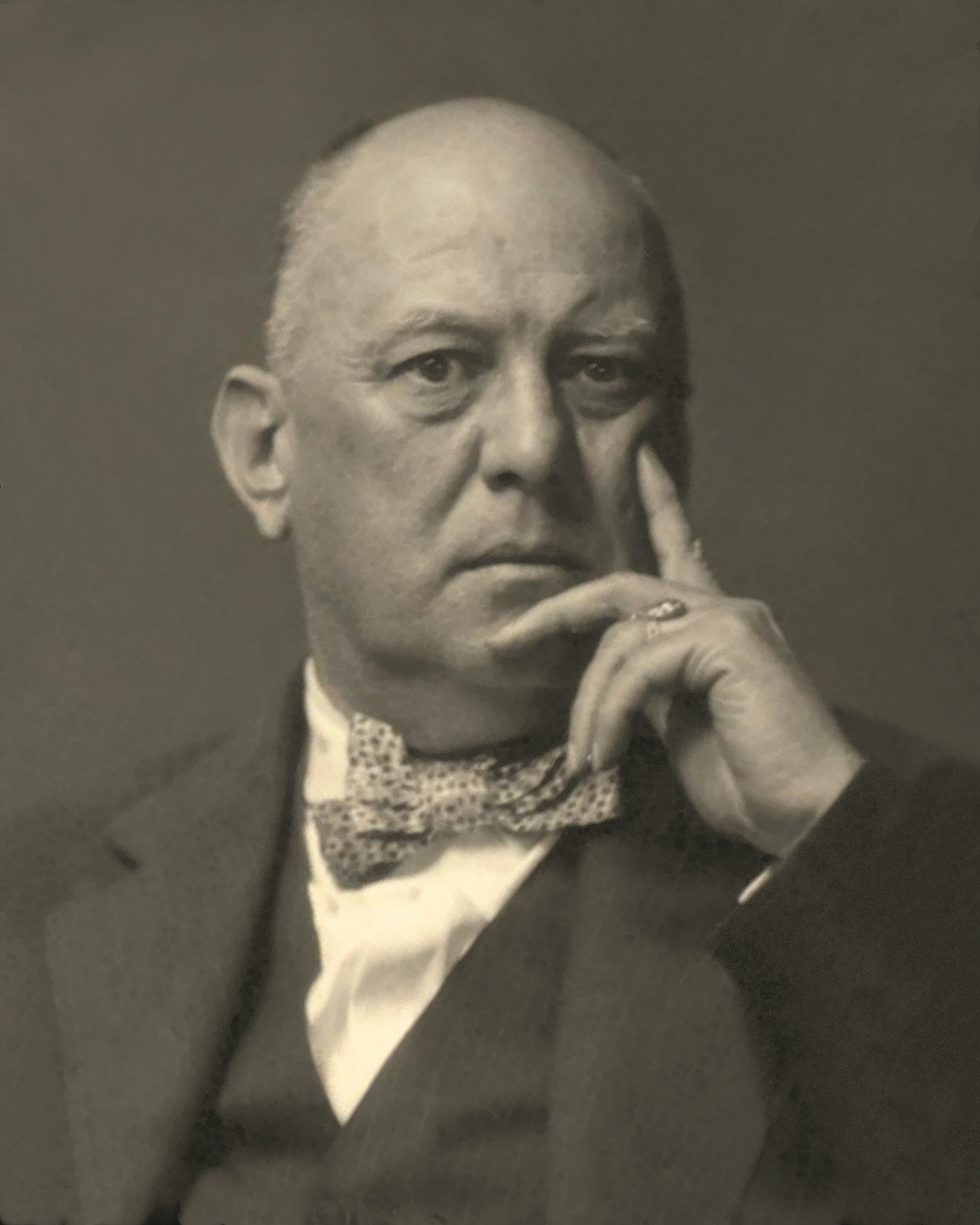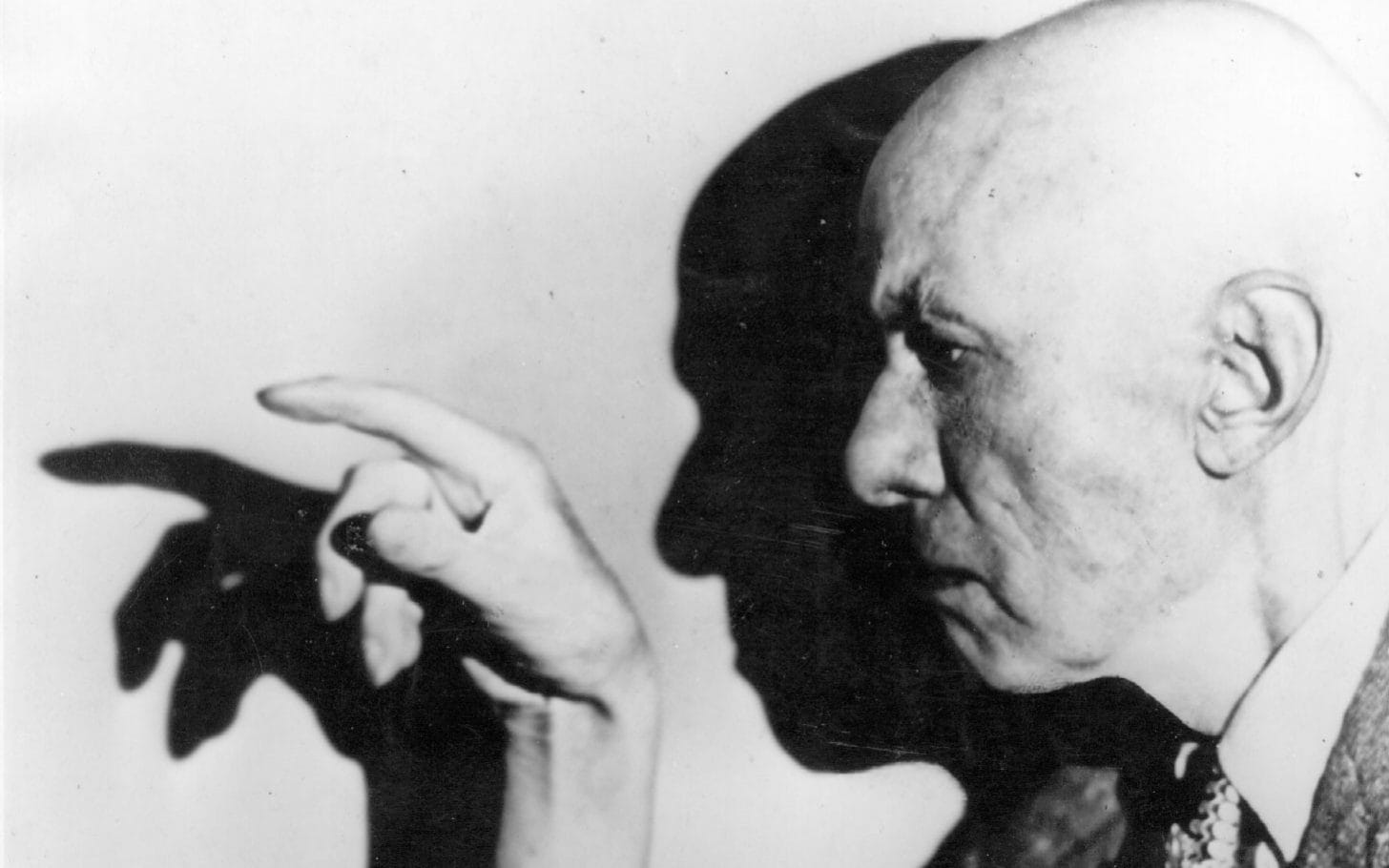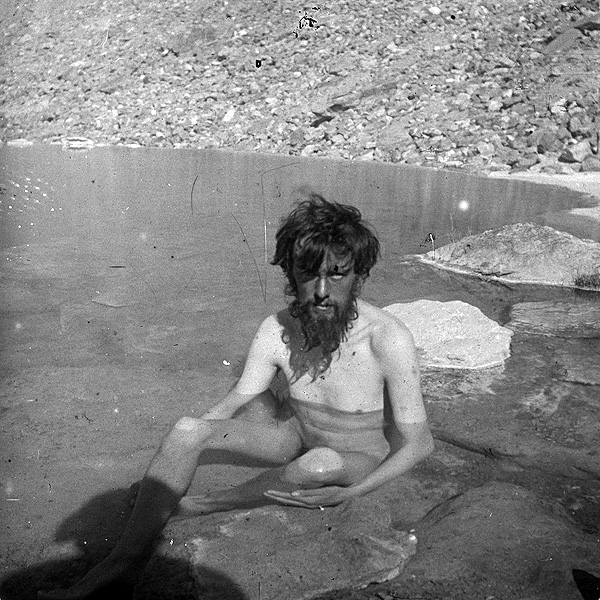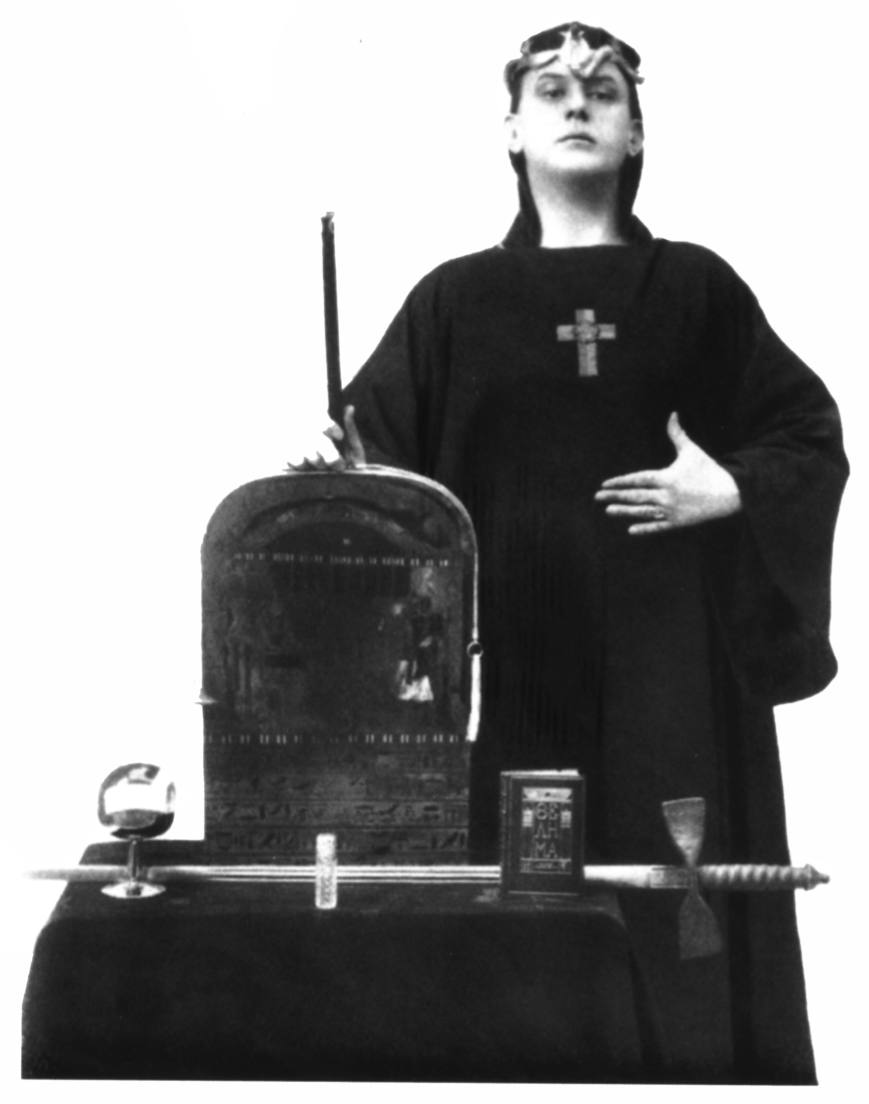
Aleister Crowley (12 October 1875 – 1 December 1947) was famed by the British press as ‘The Wickedest Man in The World’.
Crowley was an occultist, mountaineer (he co-lead the first British expedition to K2 in 1902), writer of sex manuals, cult leader, enthusiastic taker of heroin, who through magic (or ‘Magick’ in his parlance) placed himself in the services of the Antichrist, opposing anything dedicated to fighting evil in its more occult manifestations, dubbed himself ‘The Beast 666’ and founded a religion, a composite blend of -isms he called Thelema, whose mantra, “Do what thou wilt shall be the whole of the Law” vowed to free humanity from all Christian restriction and repression.
He wrote a lot. In 1904, Crowley self-published Snowdrops from a Curate’s Garden, a collection of obscene stories designed to shock, a kind of forerunner to The Aristocrats, that joke in which events turn increasingly depraved. Of course, back then being homosexual or bisexual, as Crowley was, meant going against the laws of god and the land. Consensual sex between men was a criminal act.

In an essay on Oscar Wilde, Francis Wheen reminds us that just a few years before Cowley was writing The Cocksucker’s Crime under the pseudonym “George Archibald Bishop”, in 1895 Wilde was convicted of gross indecency and sentenced to two years’ hard labour for engaging in “The love that dare not speak its name”.
Lady Windermere’s Fan, deliberately inverts middle-class morals by giving the devil all the best lines. ‘As a wicked man I am a complete failure,’ Lord Darlington comments. ‘Why, there are lots of people who say I have never really done anything wrong in the whole course of my life. Of course they only say it behind my back.’ A dunder-headed alderman who praised the playwright for ‘lashing vice’ was swiftly and publicly corrected. ‘I can assure you that nothing was further from my intentions,’ Wilde declared. ‘Those who have seen Lady Windermere’s Fan will say that if there is one particular doctrine contained in it, it is that of sheer individualism. It is not for anyone to censure what anyone else does, and everyone should go his own way, to whatever place he chooses, in exactly the way that he chooses.’

Crowley on K2 in 1902
Rather than his urges being the stuff of adolescent ruby dreams, Crowley practised what he preached. In 1923, he was deported from Italy by the county’s Prime Minister, that master of the judicious murder and fellow loss to showbiz Benito Mussoloni. The jut-jawed Italian despot got wind that a commune Crowley had founded in Sicily was rife with “unlimited sexual depravity”, reports of human and animals sacrifice, and that an Englishman had died after drinking cat’s blood.
Mussoloni might well have admired a man possessed by so much willpower, effort and decisiveness? Indeed, there are echoes of another leading figure of the type and time, namely the undeniably evil Adolph Hitler, in Crowley’s vow that “1000 years from now, the world will be sitting in the sunset of Crowlianity”. Hitler’s lust for fame, legend promised a Tausendjähriges Reich (“Thousand-Year Reich”), suggesting that Nazi Germany would last a thousand years, by which time the world would be peopled exclusively (at least above ground) by 8-foot-tall, blonde Germanic gods.
Lest you be unable to wait for his second coming and think Cowley an underachiever, in 2002, a BBC poll placed Crowley seventy-third in a list of the 100 Greatest Britons (between King Henry V of England (1387–1422) and Robert the Bruce (1274–1329), King of the Scots), and appeared on the cover art of The Beatles’ album Sgt. Pepper’s Lonely Hearts Club Band (1967) (between the Indian guru Sri Yukteswar and the Hollywood star Mae West).
The motto “Do What Thou Wilt” was inscribed on the vinyl of Led Zeppelin‘s album Led Zeppelin III (1970), he is referenced by David Bowie in the lyrics of his song “Quicksand” (1971), and Ozzy Osbourne and his lyricist Bob Daisley wrote a song titled “Mr. Crowley” (1980).

Not too shabby for a posh lad born to a very wealthy family in Royal Leamington Spa, Warwickshire, who came into a large inheritance young upon the death of his evangelising father.
Crowley rejected his parents’ fundamentalist Christian Plymouth Brethren faith, that had caused him to be sent to an evangelical Christian boarding school in Hastings, and then to Ebor preparatory school in Cambridge, run by the Reverend Henry d’Arcy Champney, whom Crowley considered a sadist.
He also joined an esoteric club. As Josh Jones notes: “During his brief sojourn in the occult society Hermetic Order of the Golden Dawn, he exerted some influence on William Butler Yeats, if only through their mutual antipathy (Crowley may have inspired the “rough beast” of Yeats’ “The Second Coming”). He’s indirectly connected to the development of the jet propulsion system—through his American protégée, rocket scientist Jack Parsons—and of Scientology, through Parsons’ partner in magic (and later betrayer), L. Ron Hubbard.”
Time, then, to hear from the man himself. How or why he came to record this is unknown. But pull the curtains tight shut. Kill the lights. Light the candles. And listen…
Would you like to support Flashbak?
Please consider making a donation to our site. We don't want to rely on ads to bring you the best of visual culture. You can also support us by signing up to our Mailing List. And you can also follow us on Facebook, Instagram and Twitter. For great art and culture delivered to your door, visit our shop.






